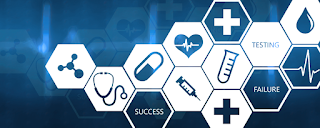Naproxen is a non-steroidal anti-inflammatory drug (NSAID) commonly used as a prescription drug as well as over-the-counter (OTC). It is generally used in low to moderate pain management and sometimes used for fever reduction. Naproxen was approved in 1976 in the U.S., and was developed originally by Syntex, then acquired by Roche and approved in the U.S. under the brand name Aleve (naproxen sodium) in 1994 for over-the-counter (OTC) use. Naproxen was approved for over-the-counter (OTC) administration due to well-established profiling of its risks/benefits for over 18 years.
View Report -
Naproxen is available as base naproxen and salt form i.e., naproxen sodium. Both the naproxen forms are available as either tablets or liquid suspension in extended-release formulation which comes in combination with proton pump inhibitor or enteric coating to prevent from abdominal risks. Naproxen belongs to heterogeneous set of compounds known to be non-steroidal anti-inflammatory drug (NSAID), which are used as analgesics, anti-inflammatory, and anti-pyretic. Naproxen is a propionic acid derivative and has all properties of non-steroidal anti-inflammatory drug (NSAID). The drugs or agents belonging to chemical class of propionic acid derivatives are used mainly in therapeutic intervention for pain, morning stiffness, and joint swelling. Naproxen is classified as a non-selective non-steroidal anti-inflammatory drug (NSAID) as it inhibits both COX-1/COX-2, mainly known for inhibiting platelet aggregation. COX (Cyclooxygenase) is a prostaglandin-endoperoxide synthase (PTGS) enzyme, which plays an important role in inflammation as well as other physiological functions.
The approved naproxen sodium dosing in the U.S. is a single dose of 220-440 mg, with a dosing interval of every 8 to 12 hours (if the symptoms persists), while the maximum daily dose limit is 600 mg. Naproxen is available in many generic versions and is being marketed in the U.S. as a prescription and over-the-counter (OTC) drug by Genetech (member of Roche group) and Bayer AG, respectively. Naprosyn and Anaprox are prescription brands marketed by Roche. Aleve and Midol Extended Relief are brands marketed by Bayer AG as non-prescription drugs for over-the-counter (OTC) use in over 50 countries in Asia, Africa, and the Caribbean. The first approval outside the U.S. was in 1981 and in most countries the approved non-prescription drug is for temporary pain relief and for fever reduction. In British Colombia, naproxen received approved as over-the-counter (OTC) drug later in January 2010. The global naproxen product labels are generally same as that in the U.S. and with a daily dosing limit of 550 mg or 660 mg in adults and children (12 years and older).
Request to View Brochure of Report -
The major driver of the naproxen market is its availability as non-prescription drug and well established profiling of its benefits and risks. Fast track development of new pharmaceutical industries drives the naproxen market. Increase in geriatric population and concomitant rise in arthritis cases also propel the naproxen market. Naproxen is not only consumed in case of arthritis, but also for muscle strain relief, back pain, knee pain, and other myriad of painful cases. This boosts the growth of the naproxen market. Increased risk of cardiovascular events such heart attack and stroke, abdominal bleeding or ulcers, and allergic reactions, especially in case of older population act as restraints of the market.
Naproxen is advised not to be consumed in late pregnancy (during third trimester) as it could lead to premature closing of ductus arteriosus. Hence, accidental consumption of naproxen or any other non-steroidal anti-inflammatory drug (NSAID) during late pregnancy requires baby to be delivered early. Another restraint of the naproxen market is availability of other drugs that have low risk of abdominal ulcers or allergic reactions as compared to naproxen. Therefore, competition in the market from other improved drugs used in pain reduction for arthritis such as steroids and other non-steroidal anti-inflammatory drugs (NSAID) are likely to hamper the naproxen market.

Comments
Post a Comment